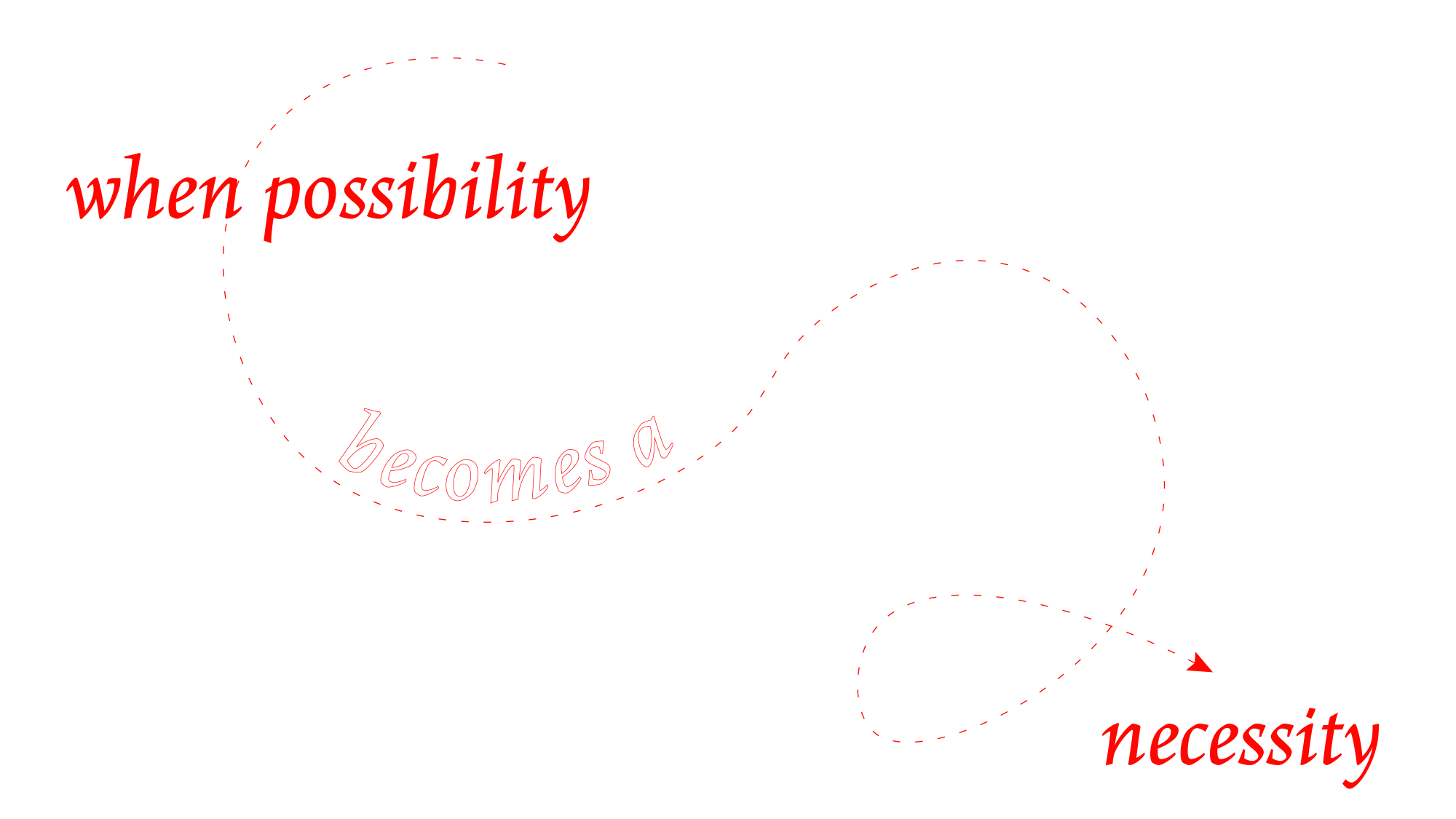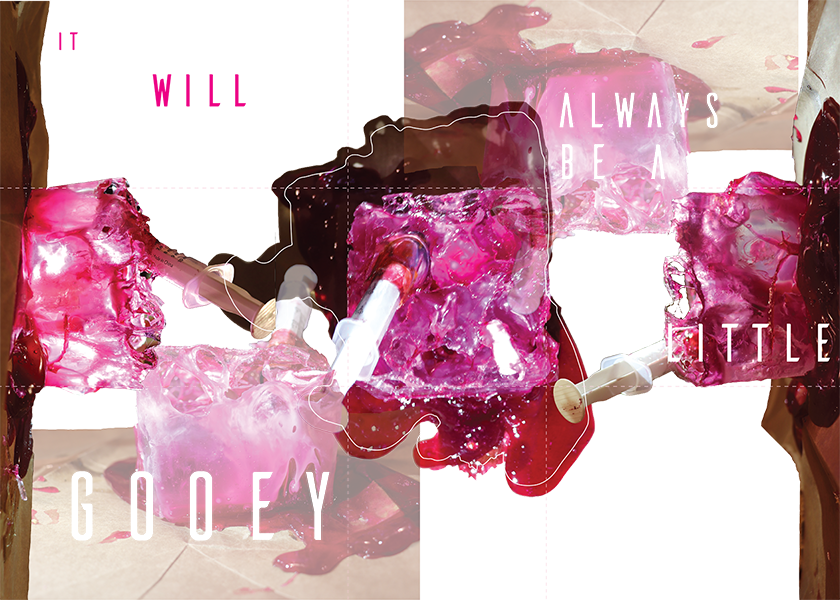Abstract
What’s my issue?
The female body is dangerous.
Why?
The female body makes violence, emotional abuse, repression, and exploitation inevitable. But why?
The patriarchy fears the female body.
The female body threatens the very framework of their system which relies on a social hierarchy subordinating women in order to uplift the patriarch. They control the female body in order to maintain this fraudulent inflation of themselves. They have naturalized their oppression; they have silenced her; and they have imprisoned her, hidden her away, so their true face is not revealed.
But her body holds a secret. She is abused, she is beaten down, she is shut up, but her menstruation remains. Her menstruation is her superpower.
It is the her promise of regeneration month after month, that sheds light on her as alive; she is living despite being told not to exist. The patriarchy would like to believe they have completely shut her down and commodified her for their capitalistic agenda, but each month she comes back. The constant reminder of their failure to attain ultimate and complete control. The patriarch maintains the visual of a closed body. They maintain the idea that their system is final and rigid, but are fooled. Menstruation cleanses the female body of their constricted role. She is pure and she is naïve in her natural flowing of blood. This act is so basic and yet creates such fear within the patriarch’s collective ego.
The act of residing inside a female body poses a threat to the patriarchy and menstruation is their warning; the announcement of the strength of the female body.
The empowerment of the female body has the transformative potential to redefine the oppressive cities we are currently bound to and menstruation is the superpower she possesses to activate the resistance.
Issue
My menstruation has been stolen.
Ripped from my body and commodified for a capitalistic agenda by the patriarch.
My blood is shed each month only to flow into the pockets of those who force my body into confinement.
My menstruation has been stolen and my body imprisoned.
I am pissed.
And you should be too.
The subversive potential of the female body is threatening. Menstruation is dangerous.
The egos of men are fragile, although their structures are not.
Menstruation is a powerful force of resistance, feared with such ferocity by the patriarchy that they felt compelled to spend centuries belittling it.
We are furious.
In a world designed for and by men, there is no place for us. And frankly, we are tired of it. We are frustrated; we are angry and we are exhausted. We are tired of walking into rooms full of white male egos. We are tired the objectification and rape. We are tired of mansplaining . We are tired of capitalism. We are tired of the patriarchy. We are tired of battling within a system that was not made to change.
We have to get rid of it. And menstruation can do just that.
I pose menstruation as the antithesis of capitalism. The patriarch’s mortal enemy. The thing that makes them squirm. If we let menstruation flow free, the social binaries and product oriented worth would be disintegrated. Essentially irrelevant. Menstruation is our revolution. Western, white centric culture does not want us to discover our own power, so they have worn us down with centuries of oppression. But menstruation does not stop and neither do we.
Menstrual flow is irregular, it is inherently unpredictable and it is above all actively anti-production.
It is a riot.
We are rioting. Because menstruation is natural. The patriarchy is NOT.
History is taken as a justification for naturalizing the systems of oppression that men know they would not be in power without. But history is written by men. History writes centuries of practices of suppression of the female body as if it was confirmed to be the innate way society was made. As if they did not violently repress any other possibility. As if their western ego and colonialist exceptionalism, did not go about squashing any dissenters and superimposing their ideals forcefully upon them. They were able to wash away cultures that outdated them ten to one, they were able to overthrow entire nations with their weapons, but they have never been able to make menstruation disappear. The best they could do was silence it.
Menstruation is nasty. It is dirty and it is shameful.
Their linguistical oppression of menstruation is the assist where history fails to come through. History can shroud menstruation in secrecy, but without a language that silences even the slightest notion of its existence, menstruation would come rolling back (every month to be exact). So they created language and advertising to infiltrate not only the external but deeply internal female psyche and perception of herself. A patriarch cannot take on menstruation on his own. Without the mass manipulation and socialization of female bodies to do their dirty work, menstruation would be out. She would flood the streets and she would not be tamed.
Their language infiltrates our psyche, weaponizing each and every one of us against each other to divert our energy away from realizing our potential to tear it all down. They know that we could burn this shit to the ground if our lives did not depend on playing into their sick games.
They rape us and then they blame us.
The patriarchy takes ownership over our minds, so they can exploit our body. Product oriented worth objectified us. The manipulation of our minds leaves us unable to distinguish if anything we do is for us or just another form of compensation to the patriarch for permission to exist. Our bodies are no exception. We are forced to walk a tightrope, balancing between death and imprisonment. We have to be pretty enough to make our presence worth the patriarch’s time, but not too pretty otherwise his uncontrollable impulses will violate our body. The home is our prison, but the streets are our hell. If we have children we should not also want to work. It is our desire to be mothers, right? The home is our designated safe haven but we are forced to remain inside of it: an awful lot like a cell I’d say. We cook, we clean, and we raise children. So we do not need a social space, right? Our place is the home, but only parts of it. We are locked inside of the home and expected to enjoy it, expected to be thankful for such a small sliver of space. But outside it we are killed. We are raped and beaten and we are watched. There is not much of an option there, is there? We dare to exist in a city outside of our designated place and are violently attacked for it. On the streets we are subject to the ferocity of the male gaze, not only directing our movements but restricting our access. Without winning the male gaze we lack acknowledgement, we are not let in. But with it we are degraded, slowly stripped of our sense of confidence. Our body, our menstruation, signals this attraction. Our bodies call the attention to get into the room, but our bodies simultaneously justify our denial from a seat at the table. The rules strictly impressed upon cannot be taken lightly. The necropolitics of the patriarchs capitalistic agenda means our lives depend on it.
FEManifesto

The Necessity of Abolishment
It has been established the ways in which gender, in terms of body politics, economic regulation, and control, is based on hierarchical gender constructions and forced performances of gender. Discriminatory design has produced social inequity in the built environment, some explicit in the way they set up the foundation for this oppression to take place and perpetuate it, others are resultants and more oblivious in their continued ignorance of the feminine experience. They stem from Historical record lacking in any significant representation of menstruators contributions and experiences that are upheld and perpetuated by biological determinist beliefs and continued underlying discriminatory language. There is a sense of false architectural benevolence that maintains the belief in architectus being the “problem solver” but while they remain situated within frameworks of the patriarchy architects are only working to “prop up unjust infrastructures” (Benjamin 168). These oppressive social politics and body politics are so embedded into the built environment, there needs to be a complete destruction and reconstruction of the way that we fundamentally approach architecture.
A radical reconstruction of the way that we approach architecture will require a willingness for designers to own to their impact and look critically at the harm it has caused. This “Retooling [of] Solidarity [and] Reimagining [of] Justice” (Benjamin 167) utilizing principles already written and being applied by Ruha Benjamin in Race After Technology and her efforts to activate more critical approaches to STEM education as well as other Black abolitionist scholars and activists working for radically, progressive change in societies infrastructure. This research and subsequent proposal of protypal approaches to a new reproductive system is less about comparing it to old approaches, as one being good and one being bad but as a call for the necessity of a more critical process of making that is constantly in flux and is constantly being constructed on top of, deconstructed, and reconstructed. As Benjamin puts it, “Calls for abolition are never simply about bringing harmful systems to an end but also about envisioning new ones. After all, the etymology of ‘abolition’ includes Latin root words for ‘destroy’ (abolere) and ‘grow’ (olere)” (Benjamin 168). The same strategies previously applied to architecture or even adaptations of them cannot simply be reappropriated and utilized for our purposes because they still remain embedded in histories oppression and therefore, cannot work in a liberatory sense. The point is not to create a new hierarchy, but to get rid of hierarchy all together. There needs to be a complete upheaval of all the systems that play into architectural creation.
Abolishment

